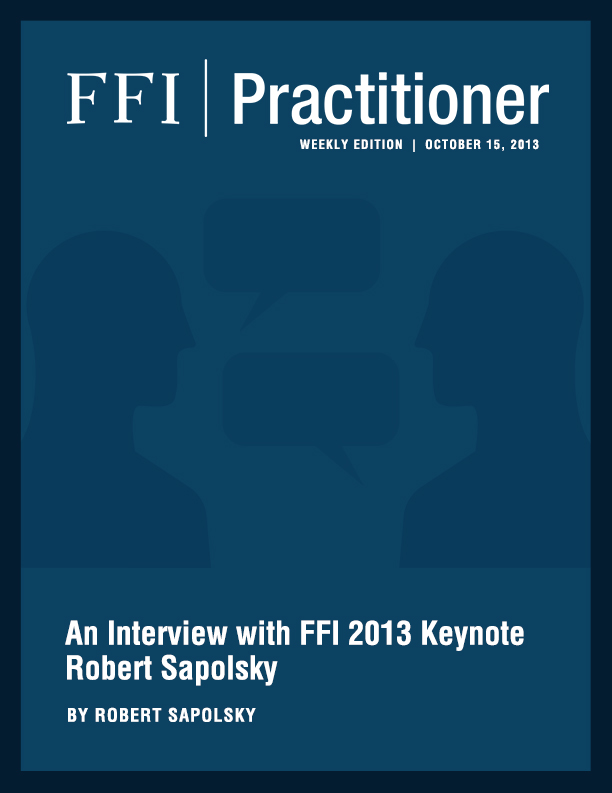
Read the interview below and tune in live for Dr. Sapolsky’s keynote address online here.
Why Zebras Don’t Get Ulcers: Stress, Disease and Coping
Dr. Robert Sapolsky shows how stress can save your life and—when activated chronically—can contribute to such illnesses as atherosclerosis, gastrointestinal disease, sexual dysfunction, and mood disorders. Sapolsky explains why some individuals cope better than others, and how can we all improve our coping skills.
The Practitioner: Stress in primates and stress in people and organizations: how do they—or do they—relate?
Robert Sapolsky: Well, naturally, the answer is that they are both very similar and very different. For the vast majority of animals, stress is about an acute physical crisis, where you are running for your life or running after a potential meal. But by the time you get to us primates, something different mostly occurs — primates are smart enough to being able to be stressed by chronic psychological issues. Among baboons, for example, if you’re miserable, it’s not because you’re starving or lions are constantly chasing you. It’s most probably because a higher-ranking animal is making you so through chronic harassment. So like us, stress is mostly about social and psychological issues with members of your own species. Thus, great similarities.
At the same time, great differences. We can be stressed by someone on the other side of the planet. We can feel upset by the misfortune of an imaginary human—a character in a book. We can feel panicked by knowing that we won’t live forever. In other words, like other primates, we are predominately dealing with psychological and social stress, but unlike any other primate, those stressors can be very displaced over space and time.
TP: Are there familial types of stress evidenced in your research (as opposed to individual stress) that could be useful as we try to understand the complex behaviors of families and their enterprise across time?
RS: Well, I think that a good rule of thumb is that any issue that a family in collective therapy would bring up as a source of tension counts as a familial stressor.
TP: How has your understanding of “why zebras don’t get ulcers” evolved over time—put another way, is “stress” itself an evolving concept?
RS: My thinking has changed considerably. An example concerns my fieldwork, where I have studied the relationship between behavior and stress-related disease among wild baboons for decades. At the beginning, if you asked me what’s the best way for a male baboon to be protected from stress, I would have said, “Be high ranking.” By now, I would say, “Have friends” (a term that is perfectly scientific when it comes to primate behavior).
TP: Talk to us about neuroscience—at least a little. This is an evolving field as well but has broad implications for those working on the “soft side” of multi-generational family enterprises. Are there things “everyone should know?” Ideas in process where “a little knowledge is a dangerous thing?” Serious caveats for the lay professional who is neither a biologist nor a neurologist but keeps modestly abreast of this conversation?
RS: Some important sound bites:
- Environment doesn’t begin at birth. The prenatal environment has a huge impact on the development of the brain.
- Early life stress can alter functioning of the brain for someone’s entire life; amazingly, there are even ways that it can influence offspring of that person.
- Amid all that bad news, there’s almost nothing in the brain that can’t be changed in the right environment. The brain of a 90-year old can even be stimulated to grow new neurons.
TP: Anything else you’d like to tell us?
RS: I would just preach a bit about one of the worst stress-related diseases out there: major depression. Far too many people view depression as some sort of failure of will, as self-indulgence. Instead, it is a disease, as real a biological disorder as is diabetes.


